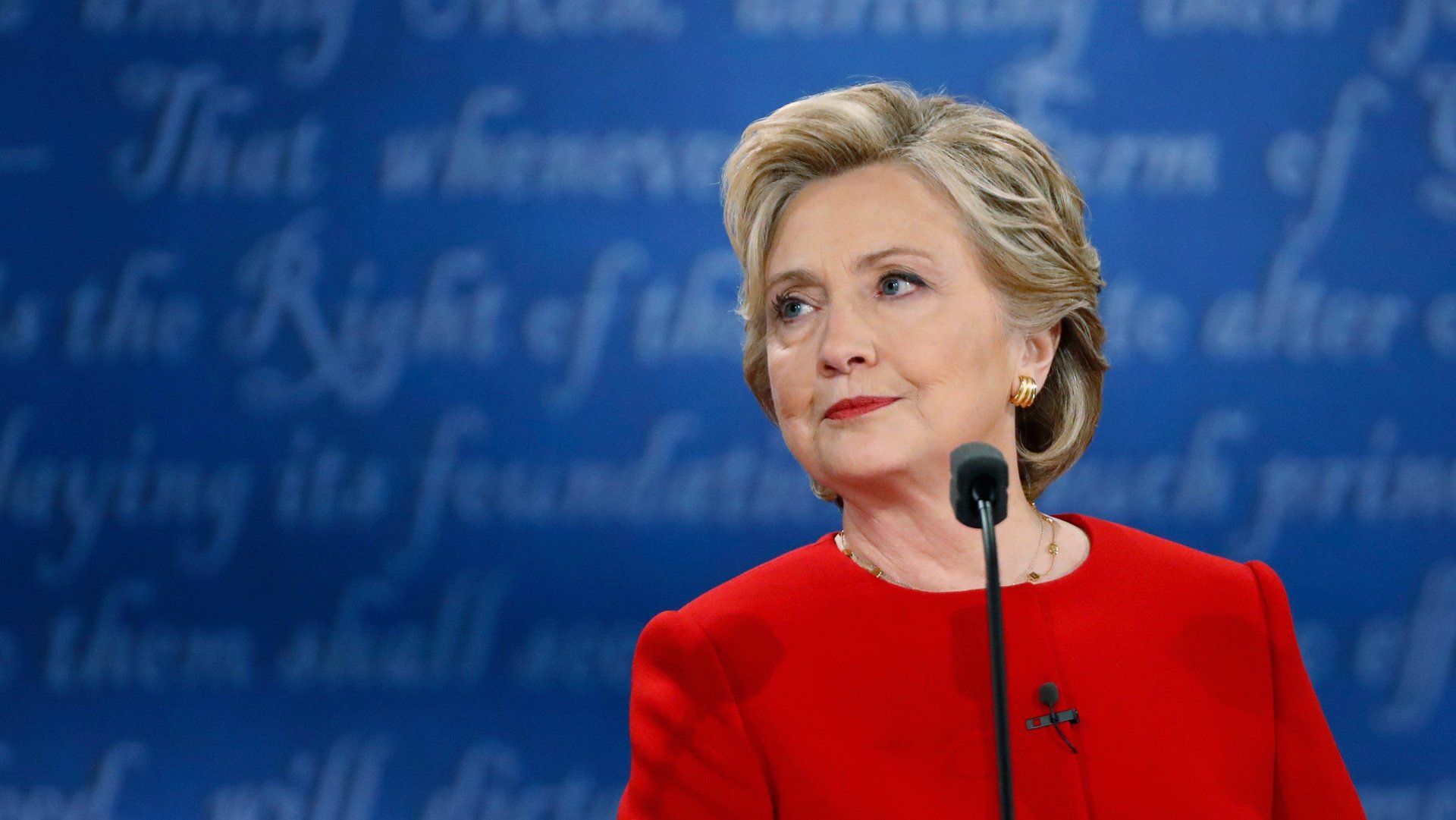Hillary Clinton just reminded an exhausted America why this election matters so much
Over the weekend I had an illuminating, albeit devastating, conversation with a pair of young male Donald Trump supporters in New Jersey.


Over the weekend I had an illuminating, albeit devastating, conversation with a pair of young male Donald Trump supporters in New Jersey.
In their eyes, I was as deluded as Hillary Clinton was crooked. She is a criminal, they told me, and she believes in sharia law. (She doesn’t). They also told me that they don’t believe the wage gap exists. (It does.) I pointed out that Clinton has laid out stronger proposals than Trump for women and the LGBTQ community—issues that affect me personally. They responded by complaining that she had changed her mind on gay marriage (as did Barack Obama and millions of other Americans) and thus can’t be trusted. They neglected to acknowledge that Trump is simply against marriage equality.
What was so striking about our exchange was the extent to which both men seemed impervious to logic and facts. Not coincidentally, it is exactly this attitude that voters witnessed on the presidential debate stage last night.
For 90 minutes, I watched as an unprepared, ill-tempered former reality TV star towered over his shorter, calmer, and much more prepared opponent. He interrupted her and bullied her, lied with a confounding yet all-too-familiar brazenness, and blithely ignored outmatched moderator Lestor Holt’s questions.
Although my job requires me to watch the debates, I have to admit I’d been dreading the experience for days now. It has been a grueling election season, physically as well as emotionally. With polls swinging wildly back and forth—sometimes within a matter of hours—a sense of despair was setting in.
But last night, Hillary Clinton reminded me that America doesn’t have the luxury of giving up. Even her most casual supporters should come away from that rhetorical blood bath with a clear idea of what’s at stake here.
Politics are imperfect. Politicians even more so. But while we need to continue working towards a more equitable system, there are millions of Americans whose lives will be directly impacted by a Trump presidency. I’m talking about Americans who rely on Planned Parenthood (which Trump’s running mate governor Mike Pence would like to eliminate), who would like to see income inequality shrink in their lifetimes, who want to marry the partner that they love and use the bathroom that most accurately reflects their gender, and be able to walk home without being racially profiled in the name of “law and order.” I’m talking about people who don’t want their friends or employees to be deported in the middle of the night.
These are issues that do not affect certain white, middle-class men from New Jersey, which is why they can afford to support a Trump presidency. At the end of our argument, the most aggressive of the two men insisted that we “hug it out.” He said he was glad that we could debate these kinds of issues as friends and wanted physical assurance that I wasn’t mad at him.
Here was a man encroaching on a woman’s personal space in an attempt to validate his self-worth. This isn’t good manners, it’s male entitlement writ large. I ended up giving him a halfhearted squeeze because, like so many women, there’s a voice in the back of my head that exists specifically to remind me not to reject or provoke strange men. But of course I was mad at him; I was literally shaking. This isn’t college debate club, where the winners and losers go out for a collegial beer and back slaps afterwards. Who won the debate? Who cares! Instead of end-of-semester grades, the next few weeks have people’s lives and livelihoods hanging in the balance.
With so much time left until the election on Nov. 8—not to mention two more debates—I can’t promise my ennui won’t come creeping back. But at least now I remember what this awful battle has always been about. And more importantly, why it’s still worth fighting for.